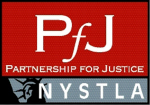![Congress in action [sic]](https://www.esqsettlements.com/wp-content/uploads/2015/05/shutterstock-congress-300x200.jpg) In an industry with old and new dogs, we’d say we’re the latter. We attended the National Structured Settlement Trade Association (NSSTA) spring leadership conference in Washington D.C., last weekend, where we met up with both the old and new as leaders from the Life Companies, IRS, Trust Companies, Defense and Plaintiff settlement producers come together to unify our fight for victims. Unfortunately, our industry gets a bad reputation due to the Factoring companies who buy the actual plans we design. From this conference we took away several positive things going on that we think people should know about.
In an industry with old and new dogs, we’d say we’re the latter. We attended the National Structured Settlement Trade Association (NSSTA) spring leadership conference in Washington D.C., last weekend, where we met up with both the old and new as leaders from the Life Companies, IRS, Trust Companies, Defense and Plaintiff settlement producers come together to unify our fight for victims. Unfortunately, our industry gets a bad reputation due to the Factoring companies who buy the actual plans we design. From this conference we took away several positive things going on that we think people should know about.
We’re pleased to see that the NSSTA is committed to strengthening and growing the primary annuity market, educating Congress, judges and lawyers how important our role is and Qualified Structured annuities are to victims. Many times when structures are discussed there is a misconception and confusion that Tax Free Structured Annuities equal Factoring.
Judges, attorneys and members of Congress often don’t know much about what we do or assume that we’re like the Factoring industry. These are companies that aggressively advertise to encourage people to sell their structures at a discount. Then there are other bad companies that try and repackage the purchased structures to new clients, often to the unwitting detriment of the original and new owner. This makes us all look bad. These folks operate at the margins of the law, like cowboys in the old Wild West.
As new dogs, ESS’s multi-faceted approach to helping people with disabilities, goes “ABOVE and BEYOND” structured settlements and is often superior to the financial services lawyers provide. We partner with Trust attorneys, Government benefit compliance and lien resolution specialists, healthcare benefits coordination as well as a top-notch wealth management team at Morgan Stanley.
NSSTA wants to educate and there’s no one better for the task than an injury victim who has seen first hand the value of what we do. A young man who was in a school bus accident as a child spoke to our group. The driver in his case was high on marijuana and cocaine and crashed the bus causing life threatening and catastrophic injuries. This victim and his family have seen first hand what we as an industry do in our new multi-faceted approach. As a disabled partner advocate he is not only educating other victims but Congress, Judges and Attorneys who need to separate our value from the Bad Apples.
Besides education, we’re pushing Congress to pass a Structured Settlement Protection Act. This would help separate what we’re doing from the unsavory factoring industry. Our bill would require judges to protect consumers dealing with factoring companies, by ensuring that anytime someone sells a structure, it’s in their best interest. This is already required in most states, but we think it should be the law of the land.
The good news is that support for structured settlements on Capital Hill appears to be more solid than ever – both broad based and from both sides of the aisle. The Structured Settlement Caucus currently consists of 53 members of Congress and is co-chaired by Democratic Congressman John Lewis and Republican James Sensenbrenner. While no doubt it is increasingly difficult to find funding or support to underwrite new social welfare programs, there remains strong Congressional support for structured settlements inasmuch as they represent a powerful and effective use of the federal tax codes to provide crucial financial benefits to injury victims who face serious life-time medical care needs and thus constitute one of our society’s most vulnerable groups.
“Stand up! Speak up!” as Congressman Lewis urged NSSTA members in a meeting with the Caucus. “Structured settlements have always enjoyed strong bipartisan Congressional support. They are the right and necessary thing to do. They work by providing long term financial security for injury victims to live with dignity.”
Of course, the fact that this can be accomplished without the direct outlay of federal funding helps explain why the Structured Settlement Caucus continues to receive strong support from both Democratic and Republican House membership and why we expect to see structured settlements play an increasingly important role helping injury victims.
This is all good news and we look forward to seeing further legislative action on the state and federal levels to expand the role and scope of structured settlements and protect the interests of structured settlement beneficiaries.


They are still extensively utilized in Canada today but are also common throughout the United States, Australia, and England.